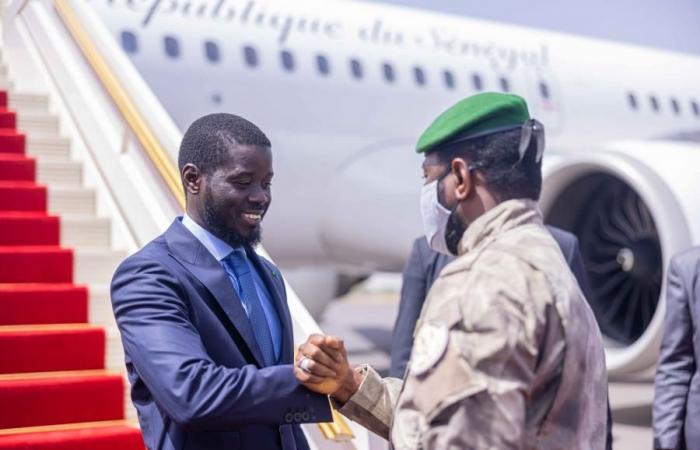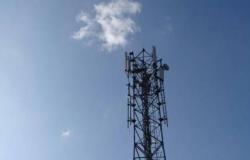The propagandists of the Sahel juntas are still furious. They who had bet so much on Senegal’s membership in the Alliance of Sahel States (AES, Mali, Burkina Faso, Niger), at the end of the crisis that pitted Senegalese President Macky Sall against the protest movements for several months. At the heart of this crisis, the standoff between Macky Sall’s regime and the dissolved Pastef party (African Patriots of Senegal for Work, Ethics and Fraternity), led by Ousmane Sonko. The latter’s “breakaway” speeches had, in the meantime, forged links of affinity with the neo-pan-Africanists, fervent propagandists of the regimes resulting from putschs in the Sahel. In its march to conquer power, Pastef did not disdain to count on these supporters to relay its fight to public opinion. Even if it meant assuming suspicions of collusion with foreign powers – Russia in the lead – little inclined to promote the expansion of the democratic principles to which Pastef has never ceased to refer. The officers of professional neo-pan-Africanism had become exuberant exegetes of the Pastef project, convinced that Senegal would soon join the club of supposedly “sovereignist” regimes that have emerged thanks to military coups since 2020 in West Africa.
“Preserving the legacy of ECOWAS”
Thus, at the height of the Senegalese crisis, these “friends” of Pastef came to wish for a coup d’état in Senegal. Ideal formula, according to them, to complete the logic of inclusion of this country in the AES. However, the Senegalese have never ceased to exclude such a hypothesis, recalling the “republican character” of their army in a country which has never experienced a coup d’état. At the end of the Senegalese crisis, on March 24, free and transparent elections brought to power one of the main figures of Pastef, Bassirou Diomaye Faye. At his side, Ousmane Sonko, leader of the movement, appointed Prime Minister. This demonstration of democratic vitality then marks a profound incompatibility between Senegalese political culture and the schemes advocated by neo-Pan-Africanist arsonists.
However, the latter demand that the Senegalese executive immediately meet their expectations, namely a “break with France and the West”, the withdrawal of Senegal from ECOWAS (Economic Community of West African States) like the three regimes of the AES, the immediate abolition of the CFA franc… But, very quickly, the actions taken and the public speech of the new Senegalese president, Bassirou Diomaye Faye, will provoke the ire of these self-proclaimed “sovereignists” who have made the AES their sanctuary. While reminding those who do not know that he is a “left-wing pan-Africanist”, the young Senegalese president – 44 years old – exalts the virtues of democracy that he wishes to “strengthen”. A statement that is the antithesis of the breviary of the military regimes of the region which have launched, with their cronies, into a veritable crusade against democracy. The Senegalese president affirms his country’s commitment to the “goals of regional integration”, promising to “work for the return to ECOWAS” of the AES countries. Enough to trigger an acute attack of hives among activists for whom pan-Africanism seems to rhyme with regional disintegration. The misunderstanding about the concept of pan-Africanism is becoming clear, between the leaders of Pastef and the thunderous followers of AES.
If it does not give up on the project of “leaving” the CFA franc, the Senegalese government explains that this will be done in conjunction with the relevant partners in the region and according to a reasonable timetable. The important thing is to work towards “a fair and prosperous Senegal in a progressing Africa”, it is necessary to “rebalance international partnerships in a win-win way”. During a visit on May 30 to Mali and then to Burkina Faso, Bassirou Diomaye Faye drove the point home by insisting to the two putschist leaders, Assimi Goïta and Ibrahim Traoré, on the need to “preserve the legacy of ECOWAS”. These remarks are hardly in line with the agenda of the AES juntas who have chosen to withdraw from ECOWAS in order to remain in power indefinitely.
Confrontation of two value systems
For the AES preachers who were expecting a theatrical “break” with France, Bassirou Diomaye Faye’s visit to Paris – his first trip outside the continent since his election – will have been an act of ultimate “renunciation”. Since then, social networks have been on fire, and the thurifers of the putschist regimes have been projecting heaps of anathemas on the Senegalese government, accused of having “turned its back on its commitments”. However, in the entourage of the Senegalese leader, some are keen to point out that their country has been able to strengthen, over the decades, the contours of a sophisticated diplomacy. For them, “sovereignty” is also affirmed by a controlled management of the diversification of partnerships, for the well-understood interests of Senegal. A “tradition” that the new government intends to strengthen. In response to hateful accusations on social media, groups of Senegalese have formed to defend their leaders and their country, and to retort that Senegal has never made any commitments with the AES countries. Between AES nationals and allies and Senegalese cyber activists, verbal violence, accompanied by physical threats, has reached a critical level.
In the same timeframe, a demonstration was organized in Dakar on June 21 by the Senegalese Coalition of Human Rights Defenders (COSEDDH) and Amnesty International. A demonstration of solidarity with the victims of attacks on freedom of expression and the press in Burkina Faso. In response, a counter-demonstration “of protest” was held a few days later in front of the Senegalese embassy in Ouagadougou, at the initiative of members of the National Coordination of Citizen Watch Associations of Burkina Faso (support of the Burkinabe junta). Facts symptomatic of the climate that reigns between these two countries.
The misunderstanding between the new Senegalese leaders and their critics appears to be a confrontation between two value systems. Between a Senegal more than ever attached to its democratic system, and regimes which work, with their relays, to demonize this democracy. The gap between the actions taken by the current Senegalese power and the expectations of some of its putative allies at the time when Pastef was pulling out all the stops to conquer power, reflects the reality of an initial misunderstanding. For those who know Senegal and the dynamics at work on its political scene, it was difficult to imagine that power coming from the polls would, in an exclusive impulse, upset all the existing balances. President Diomaye Faye, who does not have the profile of a blaster, cannot ignore the architecture of the plural forces which structure the political life of his country, all the factors constituting his election and the evaluation of national priorities… In this specific national context, he strives, with his entourage, to find the right balance between orthodox management of state power and relative loyalty to pre-electoral promises. A way, in short, of reconnecting with the virtues and the constraints of politics. It’s up to the Senegalese, and them first, to judge.






